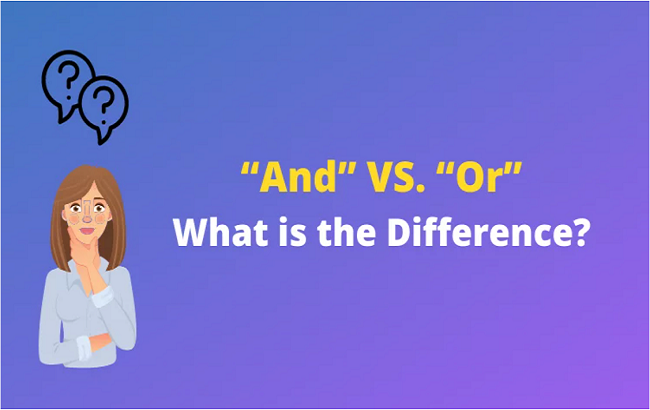The question “What is the difference between” is crucial for clarifying concepts and improving understanding. Whether you’re examining two similar terms, comparing technologies, or distinguishing between methods, these distinctions lead to more informed decisions and clearer communication. For example, understanding what is the difference between similar tools or systems, like AI and machine learning, can significantly impact how you approach a problem.
In this article, we will break down five essential insights that highlight how understanding these differences can enhance your approach to personal and professional challenges. From everyday language choices to complex technological innovations, recognizing these distinctions can transform your decision-making process, allowing for more effective problem-solving and innovation. Whether in your career or day-to-day life, mastering the art of comparison opens up new opportunities for growth and success.
1. What is the Difference Between ‘Between’ and ‘Among’?
The distinction between “between” and “among” is one of the most frequently asked questions in English grammar. Understanding this difference can make your writing clearer and more precise.
- Between is used when referring to two or more distinct, individual items or entities.
- Example: The meeting will take place between the manager and the team members.
- Among is used when referring to a group or collective entity.
- Example: The secret was shared among the team.
Key Insight: Using between for separate items and among for groups will improve the precision of your communication.
If you’re interested in a deeper dive into grammar rules, consider checking out the detailed explanation of between vs among.
2. What is the Difference Between ‘Less’ and ‘Fewer’?
Another common language dilemma arises with the use of “less” and “fewer.” Understanding this distinction can help avoid awkward sentence construction and improve your writing flow.
- Fewer is used with countable nouns—things that you can count individually.
- Example: There are fewer chairs in this room than in the next.
- Less is used with uncountable nouns—things you cannot count individually.
- Example: There is less water in the bottle today.
Game-Changing Tip: Recognizing when to use fewer vs less can be a simple way to elevate the clarity and quality of your writing.
3. What is the Difference Between ‘Impact’ and ‘Effect’?
While impact and effect are often used interchangeably, their meanings differ, and knowing when to use each term can enhance your communication skills.
- Impact refers to a strong or immediate result. It implies something powerful and often abrupt.
- Example: The impact of the new law was felt immediately by businesses.
- Effect refers to a result or outcome that usually follows a change. It’s a broader term and typically describes a longer-term result.
- Example: The effect of the new regulations on the economy will take time to analyze.
Key Insight: By understanding the difference between impact and effect, you’ll be able to convey ideas more clearly, especially when discussing results or consequences in any context.
4. What is the Difference Between ‘Data’ and ‘Information’?
In the digital age, the distinction between data and information is key for those working in technology, analytics, and research. While both terms deal with facts or figures, they have very different connotations and uses.
- Data is raw, unprocessed, or unorganized facts and figures. It is often meaningless until it is interpreted.
- Example: The raw data from the survey included numbers and percentages that had no immediate context.
- Information is data that has been processed, organized, and interpreted to have meaning or value.
- Example: The information derived from the data helped the team understand the trends and make decisions.
Game-Changing Insight: Knowing the difference between data and information helps in making informed decisions based on the context and relevance of the data.
For further reading on this distinction, you might want to explore how data vs information is understood in the business world.
5. What is the Difference Between ‘Innovation’ and ‘Invention’?
In the realm of business and technology, understanding the difference between innovation and invention is crucial for recognizing opportunities and fostering creativity.
- Invention refers to the creation of something entirely new that has never existed before. It is the process of coming up with a brand-new product, idea, or technology.
- Example: The lightbulb was one of the greatest inventions of all time.
- Innovation, on the other hand, refers to improving upon or applying an existing product or idea in a new way. Innovations are often about enhancing functionality or addressing gaps in the current market.
- Example: The smartphone was an innovation based on the invention of the telephone.
Key Insight: Recognizing the difference between innovation and invention is essential for understanding how industries evolve and how businesses can drive change. Inventions lay the foundation, while innovations build on those foundations to improve and transform products.
What is the difference between AI and machine learning
The query “What is the difference between AI and machine learning” seeks to clarify two interconnected but distinct fields. AI, or artificial intelligence, refers to machines or systems designed to mimic human intelligence, performing tasks like problem-solving or decision-making. On the other hand, machine learning is a subset of AI, focusing on the use of algorithms and data to allow machines to improve their performance over time without explicit programming. Understanding what is the difference between AI and machine learning is essential for those working in tech or data science, as it helps in distinguishing broader AI capabilities from the specific learning models.
What is the difference between freelance and contract work
When people ask, “What is the difference between freelance and contract work,” they are often trying to understand the nuances between two popular forms of employment. Freelance work typically offers flexibility, with individuals working independently on a variety of projects, without long-term commitments to any specific client. What is the difference between freelance and contract work? In contrast, contract work generally involves a more structured relationship with an employer, often for a fixed duration, with a focus on a specific set of responsibilities. Knowing the key differences between the two is essential for anyone considering a career path in these areas.
What is the difference between vegetarian and vegan diets
What is the difference between vegetarian and vegan diets is a common question asked by those interested in plant-based eating. Both diets avoid meat, but what is the difference between vegetarian and vegan diets? Vegetarians do not consume meat but may still include animal products like dairy, eggs, and honey in their diet. In contrast, vegans eliminate all animal-derived products, focusing strictly on plant-based foods. Understanding what is the difference between vegetarian and vegan diets is crucial for anyone making dietary changes for ethical, environmental, or health reasons.
What is the difference between cloud computing and cloud storage
The question What is the difference between cloud computing and cloud storage can often confuse newcomers to tech. Cloud computing involves the delivery of computing services—like servers, databases, software, and analytics—over the internet, allowing businesses and individuals to access resources without maintaining physical infrastructure. What is the difference between cloud computing and cloud storage? Cloud storage, on the other hand, refers specifically to the storage of data in online servers rather than local systems. By distinguishing between these two, individuals and businesses can better understand which services they require for their operations. For additional details, check out this guide.
What is the difference between socialism and capitalism
A fundamental question for economics and political philosophy is “What is the difference between socialism and capitalism?” In a capitalist system, resources and businesses are privately owned, and the market largely determines the distribution of goods and services. What is the difference between socialism and capitalism? Socialism advocates for public ownership and a planned economy to reduce inequality, emphasizing the welfare of all members of society. Understanding these economic systems is crucial for discussions about wealth distribution, government intervention, and individual rights.
FAQ: Commonly Asked Questions
1. What is the difference between ‘what’ and ‘which’?
- “What” is used for open-ended questions, while “which” is used when the options are limited.
2. What is the difference between ‘theory’ and ‘hypothesis’?
- A theory is a well-established explanation, while a hypothesis is a testable prediction.
3. What is the difference between ‘affect’ and ‘effect’?
- Affect is a verb (to influence), and effect is a noun (the result).
Conclusion
Understanding what is the difference between commonly used concepts is not just about language—it’s about making more informed decisions in everyday life. From grammar rules to business strategies, the ability to recognize subtle differences can change how we approach problems, communicate ideas, and solve challenges. I hope these 5 key game-changing insights help you better navigate the world around you.
For more insights, you might want to check out 123movies Free Online Movie Streaming Sites for entertainment options and more tech-related content.
You May Also Like:
Ath. Bilbao – FC Barcelona: 5 Thrilling Matches, Unbelievable Upsets!




